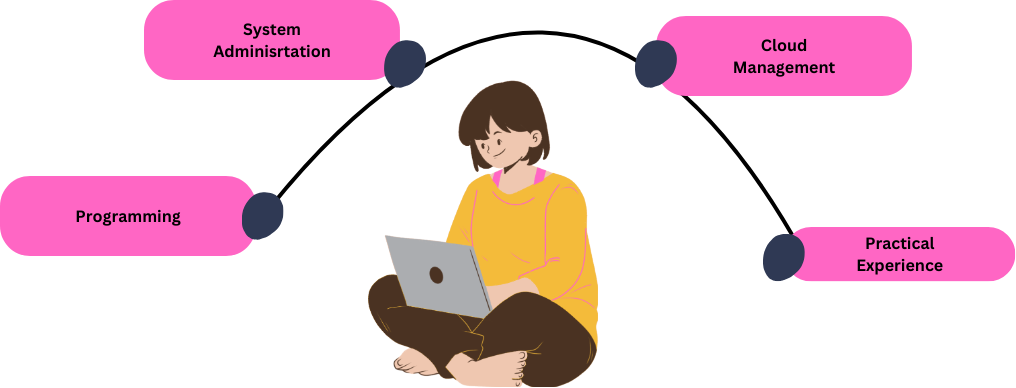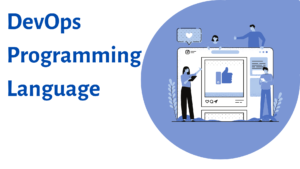Introduction
DevOps Engineer Roles and Responsibilities rooted in experience and best practices, transforms software development lifecycle management by integrating development, testing, and support processes. This approach optimizes tool deployment, streamlines testing, and enhances productivity, with a focus on continuous integration and deployment. In the past, departmental silos led to process gaps and conflicts, which DevOps addresses by fostering collaboration and efficiency. Organizations recognize the demand for DevOps skills, offering dedicated training courses to employees. Concurrently, widespread cloud technology adoption revolutionizes software development.
Table of DevOps Engineer Roles and Responsibilities
What is a DevOps Engineer?
A DevOps Engineer collaborates closely with development and operations teams to ensure a streamlined and efficient software development process, resulting in the rapid delivery of high-quality software.
DevOps Engineers play a pivotal role in the software development lifecycle, responsible for developing, deploying, and managing software applications. They oversee the entire project lifecycle, from development and testing to deployment and ongoing maintenance.
Moreover, DevOps Engineers automate software systems to expedite development and deployment processes, leveraging tools like Puppet, Chef, and Ansible. They also ensure optimal and secure system operation.
Benefits of DevOps Engineer
- Faster Delivery: DevOps engineers accelerate application development, testing, and deployment, overseeing the entire software lifecycle.
- Quality Product: Their comprehensive oversight leads to improved product quality and heightened customer satisfaction.
- Collaborative Work Environment: DevOps engineers foster collaboration among project stakeholders, ensuring alignment towards common goals.
- Cost Reduction: Automation and modern technologies employed by DevOps engineers result in long-term cost savings.
- Enhanced Product Scalability: They manage infrastructure scalability to maintain optimal application performance, keeping organizations competitive.
DevOps Engineer Job Description
A DevOps Engineer’s role is crucial in bridging development and operations. Their responsibilities typically include designing and implementing automated deployment and testing pipelines, managing infrastructure as code, and troubleshooting production issues.
The job description often specifies technical skills such as proficiency in Infrastructure Automation Tools (e.g., Ansible, Puppet, Chef), Cloud Computing platforms (e.g., AWS, Azure, Google Cloud), and scripting languages (e.g., Python, Ruby, Bash). Additionally, interpersonal skills like communication and problem-solving are emphasized.
DevOps Engineers are expected to thrive in fast-paced, Agile environments and be willing to provide production support on a rotational basis to ensure 24/7 system functionality.
DevOps Engineer Roles and Responsibilities
DevOps Engineers serve as a link between software development and IT operations. The DevOps Engineer Roles and Responsibilities include:
- Automation: Automating the software development process to minimize errors and enhance efficiency.
- Infrastructure as Code (IaC): Developing and maintaining infrastructure using tools like Ansible, Puppet, or Chef, often in conjunction with cloud platforms.
- Continuous Integration and Delivery (CI/CD): Implementing and maintaining CI/CD pipelines to automate code testing, building, deployment, and monitoring.
- Monitoring and Troubleshooting: Monitoring system health and resolving issues using tools like Prometheus, Grafana, or Datadog.
- Collaboration: Working closely with development and operations teams to ensure a collaborative and efficient software development process.
- Security: Ensuring the security of the software development process by implementing security measures and conducting audits.
- Orchestration: Orchestrating complex, distributed systems to ensure optimal functionality.
- Communication: Effectively communicating with stakeholders to resolve issues and provide updates on the software development process.

DevOps Engineer Roles and Responsibilities
Essential Skills for a DevOps Engineer
- Automation Skills: Proficiency in scripting languages and automation tools to automate the development process.
- Cloud Computing Skills: Experience with cloud platforms for designing and maintaining infrastructure.
- Containerization Skills: Familiarity with containerization technologies like Docker and Kubernetes.
- CI/CD Skills: Experience with implementing and maintaining CI/CD pipelines.
- Monitoring and Troubleshooting Skills: Ability to monitor systems and troubleshoot issues effectively.
- Collaboration Skills: Strong communication and problem-solving skills for working collaboratively with teams.
- Security Skills: Understanding of security measures and procedures throughout the development lifecycle.
- Orchestration: Ability to orchestrate complex systems to ensure functionality.
- Communication Skills: Excellent communication skills for collaboration and stakeholder engagement.
DevOps Engineer Salary
DevOps Engineers are among the highest-paid professionals globally. Salary varies depending on experience, location, industry, etc. In the United States, the average salary ranges from $76,000 to $157,000 per year, with finance, healthcare, and technology industries offering the highest salaries.
Experience significantly influences salary levels, with entry-level professionals earning around $88,000 per year and those with over 10 years of experience earning an average of $125,000 per year.
DevOps Training and Skill Development
Various training options are available for aspiring DevOps Engineers, including online courses, boot camps, conferences, workshops, on-the-job training, and open-source contributions. These avenues provide individuals with the necessary skills and knowledge to excel in the field of DevOps engineering.
Conclusion
DevOps fosters a culture of collaboration, automation, and continuous improvement, resulting in faster and more reliable software delivery. DevOps Engineers play a critical role in automating the software development lifecycle and ensuring optimal system performance. DevOps Engineer Roles and Responsibilities encompass automation, infrastructure management, CI/CD implementation, monitoring, collaboration, security, and more. Essential skills for DevOps Engineers include automation, cloud computing, containerization, CI/CD, monitoring, collaboration, security, orchestration, and communication. DevOps Engineers command competitive salaries, with variations based on experience, location, and industry. Numerous training options are available to help individuals develop the skills needed for a successful career in DevOps engineering.



